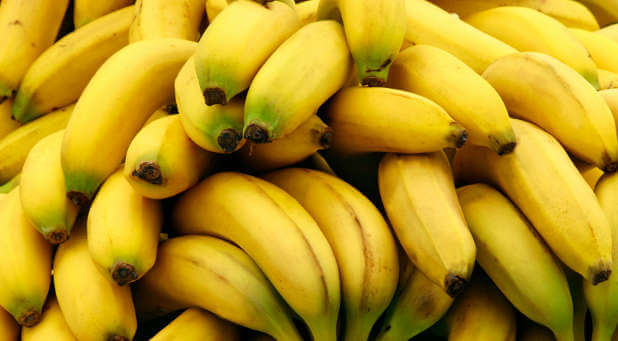Rabbi Shmuel Bloom, Vice Chairman of the Agudath Israel World Organization, is a very busy man involved in important matters concerning the public. Why do you think he would spend many hours traveling to look at bananas in Israel, especially all the way up north near T’veriya (Tiberias)?
A secular farmer, Gibor Koach, whose produce focus is strictly bananas, decided that he would observe the Shemitah (the Sabbatical Year) this time around. He approached the organization that helps facilitate this—Keren HaShviis—for assistance, and they stipulated that he would be registered in their program if he would also undertake to be personally Sabbath observant (Shomer Shabbos) throughout Shemitah. He agreed.
The Rabbinic court (Otzar Bet Din) of Bnei Brak made the decision to cover his farming expenses and, in return, all the produce would become the property of Otzar Beis Din (court) and would be distributed in full accordance with Jewish Law (Halacha).
Israel suffered a significant cold spell for two to three weeks during the winter. Bananas don’t like cold, and cold doesn’t like bananas. When bananas are still growing and get hit with frost, they turn brown and become rock hard.
The hero of our story, Koach knew he was in deep trouble when the relentless cold hadn’t let up for over a week. He lived a distance from his orchard and hadn’t yet seen the damage with his own eyes. He began to receive calls from his neighbor farmers that have orchards bordering his, complaining bitterly that their entire banana crop had been destroyed by the frost.
He decided it was time to inspect the damage up close, no matter how painful it may be. He drove up close to Tverya to inspect his orchard, as well as those of his neighboring farmers. As he passed from one orchard to another, he was overwhelmed by the damage. Not a single fruit had survived; no tree was spared. His neighbors took quite a beating. All the bananas were brown, hard as a rock. He could only imagine how bad his trees must have gotten it.
Yet when he finally got to his orchard, he was awestruck. ALL of his bananas were yellow and green. It’s as if his orchard wasn’t a part of this parcel of land. His orchard bordered those of his neighbors, but not a single tree of his was struck by the frost. It’s as if a protective wall kept the damage away.
At first he thought he was imagining it. As he rushed from one section of his orchard to another, the realization that the more the farmer keeps the Shemitah, the more the Shemitah keeps the farmer, hit home.
He immediately called his contacts at Keren HaShviis and yelled into the phone, “Karah Nes, Karah Nes!” (A miracle happened, a miracle happened).
It was a miraculous modern-day manifestation of “V’Tzivisi Es HaBracha” (I will ordain My blessing for you in the sixth year). There is no way to explain this other than that God keeps His promises. He says keep Shemitah, and I’ll take care of you. He sure does.
Keren HaShviis reported that farmers who have until now refused to keep Shemitah have been turning to the Keren following their recent losses. They are now ready to commit to Shemitah observance.
Rabbi Bloom took the time to travel all the way to Tverya (Tiberias) and back to witness this awe-inspiring phenomenon. During the previous Shemitah, Agudath Israel of America provided over $1,000,000 to Keren HaShviis. It plans to do even more this time around.
For the original article, visit israeltrees.org.












